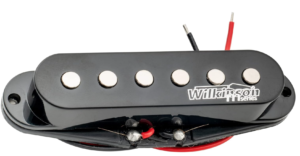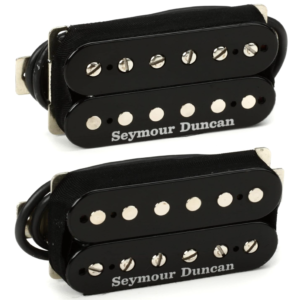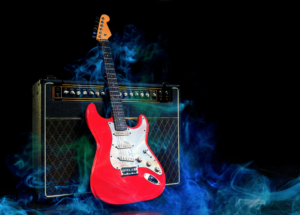How To Get A Great Electric Guitar Tone
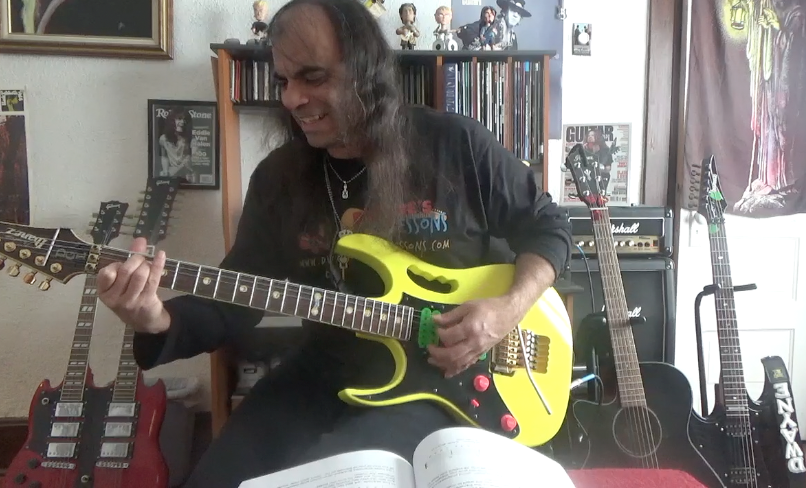
TheLearn to get a great guitar tone.
In this lesson, learn how to get a great electric guitar tone. The right guitar tone will be your motivation to practice and learn. But there is a science to getting it right. That is what this lesson is going to teach you.
Research, research, research
You first want to think about what kind of tone you want. Do you want a clean tone? Do you want a tone that is clean with some reverb on it? How about a tone that has a little gain on it? What about a guitar tone with a lot of distortion? All these are great options and something to think about.
This is why it is so important to do research, research research. Look to guitar players who inspire you to play. What kind of guitar tone do they have? This will give you direction on which way to go when it comes to developing a great tone for your guitar.
What kind of amp?
This is another thing you want to look into. What kind of amp does your favorite payer use? What is the brand of the amplifier? Can you research the settings of the amp? Nowadays with the internet, you would be amazed at the insight you can get to how your favorite guitar payer sets up their amplifier. You have to do research, research, research.
Another thing to take into consideration with amplifiers is modeling amps. These are amplifiers that have multiple amp sounds in them. The benefit to the player is that they have various options for selecting a guitar tone. These can be very beneficial in this stage. A great modeling amp I’d recommend would be a Fender Mustang.
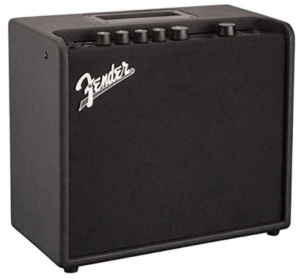
Look into this suggested amplifier or the kind of amplifier your favorite guitar player uses. If you have multiple guitar players that inspire you to play and they use different amps, the Fender Mustang might be a great option for getting all those different amplifier sounds. Plus, it can help you to develop your unique tone.
What kind of pickups?
The type of pickups that are used in the guitar can make a huge difference as well when it comes to tone. Single-coil pickups give more of a clear sound with high frequencies. They produce a nice “biting” sound that cuts through the music.
The other type of guitar pickup is called a humbucker pickup. This is where you put two single-coil pickups together. These produce a much “fatter” sound and are preferable for certain types of music with high gain output.
Both of these pickup types can make a huge difference in your sound. So be sure to research what type of pickups your favorite guitar player uses. Or, go to the music store and try out different guitars with these types of pickups in them. This will give you first-hand insight into how they sound and which type you prefer to use.
Pedals?
Another thing you want to look into is whether or not they use guitar pedals. These can make a huge difference in the guitar sound that catches your attention. Pedals come in all different sizes, colors, and shapes. And if they are used by your favorite guitar players, you might want to look into getting some.
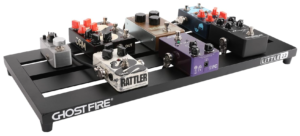
The most effective way to get this part of your guitar sound would be to get an effects processor. These are like having a whole bunch of pedals in one unit. These are like the modeling amplifiers that I mentioned earlier in the lesson.
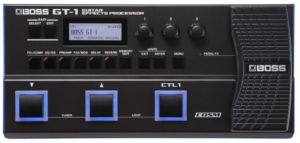
No matter if you decide to use pedals individually, or if you decide to use an effects processor, both of these options can be a great way to spark your creativity. Like I said before, research your favorite players and see if they use guitar pedals. If they don’t no worries, But if they do, look into which ones they use and see about getting them. Either individually, or collectively with an effects processor.
Know your equipment
Getting a quality sound from your guitar and amplifier is about knowing your equipment. How it works individually as well as collectively. Learn how your guitar works. The amplifier. Or the guitar pedals. How all these components work together will make a difference.
The more you know about how all your equipment works individually as well as a whole, the better guitar sound you are going to be able to produce. So be sure to do this. I see this being a problem with most players wanting to get a great guitar sound. So be sure not to be one of those players 🙂
Work with it daily
The best way to develop the sound that you are looking for is to work on it daily. As I stated before, this is a science, and as all sciences go, they take some trial and error. They take time working with components and experimenting with them. If you are willing to do this daily, I guarantee you that you will develop the guitar sound you are looking for. But this must be done daily for this to happen.
Conclusion
To get a great guitar sound, you must put in the work. It is very much like physical fitness. You can hire someone to help you, but it all comes down to you and your desire to make a change. The same thing goes here. You must have the desire to get the tone you are after and be willing to do what it takes to make that happen.
Follow these suggestions listed in the lesson and you will get there quicker than expected. But that will only happen if you are willing to put in the work. Put in the time daily. Experiment with your pedals (if you use any) turn your amplifier knobs to different configurations and listen for how it affects your tone.
If more help is needed feel free to reach out as I offer private guitar lessons. I can help you quickly get to where you are going with the desired sound you are shooting for. Just contact me and we will set up a free consultation.
Thanks for reading and best of luck.
Sincerely, Dwayne Jenkins
